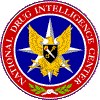ARCHIVED
![]() To Contents
To Next Page To Publications Page
To
Home Page
To Contents
To Next Page To Publications Page
To
Home Page

|
National Drug Intelligence Center Virginia Drug Threat Assessment Update June 2003 CocaineTreatment and mortality data indicate that cocaine, both powdered and crack, poses one of the most significant drug threats to Virginia. According to data from the Treatment Episode Data Set (TEDS), there were 3,891 powdered and crack cocaine-related admissions to publicly funded treatment facilities in Virginia in 2002, an increase from 3,539 in 2001. Cocaine also is a factor in a significant number of drug deaths in Virginia. The Office of the Chief Medical Examiner for Virginia reported that 202 of the 1,137 drug deaths in the state in 2002 involved cocaine, a substantial increase from 152 in 2001. In spite of these increases, data from the 1999 and 2000 National Household Survey on Drug Abuse (NHSDA) indicate that 1.5 percent of Virginia residents reported having abused cocaine at least once in the year prior to the survey, compared to 1.6 percent nationwide. Cocaine is readily available in Virginia. Forty-three of the 47 law enforcement respondents to the National Drug Intelligence Center (NDIC) National Drug Threat Survey (NDTS) 2002 in Virginia reported that the availability of cocaine was high or medium in their jurisdictions. This ready availability also is exemplified by the large number of cocaine seizures, arrests, and sentences in the state. According to Federal-wide Drug Seizure System (FDSS) data, federal law enforcement officials in Virginia seized 86.3 kilograms of cocaine in 2002. The Virginia State Police made 5,298 cocaine-related arrests in 2000 and 5,732 in 2001, more than for any other drug except marijuana. U.S. Sentencing Commission (USSC) data indicate that the percentage of drug-related federal sentences that were cocaine-related in Virginia (68%) was higher than the national percentage (43%) in fiscal year (FY) 2001. Cocaine prices in Virginia vary depending on location of sale and amount sold. According to the Drug Enforcement Administration (DEA) Washington Division, a kilogram of powdered cocaine sold for $21,000 in Roanoke, $25,000 to $30,000 in Richmond, and $31,000 in Norfolk in the fourth quarter of FY2002. A gram of powdered cocaine sold for $100 in Norfolk during that period. In Richmond a kilogram of crack sold for $25,000 and a rock for $20 in the fourth quarter of FY2002. New York City-based Dominican and Colombian drug trafficking organizations (DTOs) and criminal groups are the primary transporters of powdered cocaine into Virginia. However, Mexican criminal groups increasingly are transporting powdered cocaine into the state, particularly into southern Virginia and the Shenandoah Valley region. Powdered cocaine typically is transported into Virginia from New York City via private and rental vehicles; however, it also is transported from Philadelphia, Miami, Atlanta, Los Angeles, and North Carolina using similar conveyances. Tractor-trailers; couriers aboard buses, passenger railcars, and commercial aircraft; and package delivery services also are used to transport cocaine into Virginia from many of these locations. Various ethnic criminal groups and local independent dealers distribute powdered and crack cocaine at the wholesale level in Virginia. African American, Asian, Dominican, Haitian, Jamaican, and Mexican criminal groups as well as local independent dealers distribute wholesale quantities of cocaine in the state. These groups and dealers as well as various local African American and Hispanic gangs are the dominant retail-level distributors of both powdered and crack cocaine in Virginia. Most of the crack available in the state is converted from powdered cocaine locally as needed. Cocaine distributed at the retail level typically is packaged in small plastic bags or vials; however, crack also is sold as rocks. Powdered cocaine and crack cocaine usually are distributed from open-air markets, private residences, and bars. Crack cocaine is the drug most often associated with violent crime in Virginia. According to law enforcement officials, retail-level crack distributors often commit violent acts to protect turf.
|
End of page.